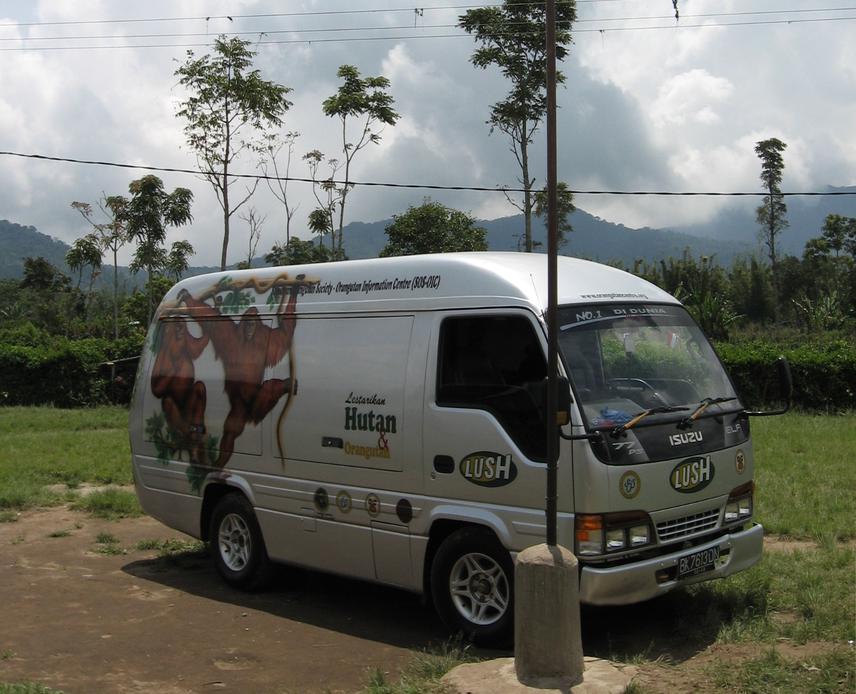Panut Hadisiswoyo
Other projects
The aim of the project is to build the capacity of the Marike community to develop an effective and ethical interpretive ecotourism venture, in order to support and promote the conservation of Sumatran orangutans and their forest home.

MEDI is a grassroots programme promoting the protection of the critically endangered Sumatran orangutan (Pongo abelii) and their rainforest ecosystem, working with the community in the Marike region, located adjacent to the Gunung Leuser National Park (GLNP) in North Sumatra, Indonesia.
Marike is located adjacent to the East Leuser forest block, which supports 1,052 Sumatran orangutans, nearly 16% of the remaining population. Orangutans are an umbrella species, and many other species will also be conserved through their protection. Within the GLNP, a shortlist of notable species includes: gibbons and siamangs (Family Hylobatidae), Thomas leaf monkeys (Presbytis thomasi) long tailed macaques (Macaca fascicularis), pig tailed macaques (M. nemestrina), greater slow lorises (Nycticebus coucang), Sumatran rhinoceros (Dicerorhinus sumatrensis), tigers (Panthera tigris sumatrae), sunbears (Helarctos melayanus), wild boars (Sus scrofa), rhinoceros hornbills (Buceros rhinoceros), and various remarkable species of flora, such as the parasitic titan arum (Amorphophallus titanium), and the world's largest flower, Rafflesia arnoldii.
The project will promote GLNP conservation by assisting communities living adjacent to areas of high biodiversity to protect and improve their livelihoods. In addition to thousands of species of flora and fauna, around four million people living in northern Sumatra depend on the Leuser forests for vital ecological services. However, poor coordination between government and communities and a lack of understanding of the true value of protected areas, combined with a rising human population with limited sustainable livelihood options, exacerbate their destruction. MEDI’s holistic approach serves to tackle all of these factors, and addresses the sense of disempowerment felt by communities regarding the fate of the forests, through direct involvement in grassroots conservation action. The project has social as well as environmental benefits, offering a means of supporting families whilst preserving the rainforest, relying on the sustainable use, rather than exploitation, of resources.
We will oversee the formation of the Marike Ecotourism Council (MEC), which will manage the enterprise and determine the equitable distribution of income generated. The project will help safeguard the health of orangutans and other wildlife in the park (as well as the visitors and local people). The community will also benefit in becoming more informed about orangutans and their environment, which will allow them to better serve the tourism industry whilst also helping to protect the wildlife/environment of the area. Tourist visitors will subsequently become more informed about the orangutan conservation situation, as well as that of rainforests in general.